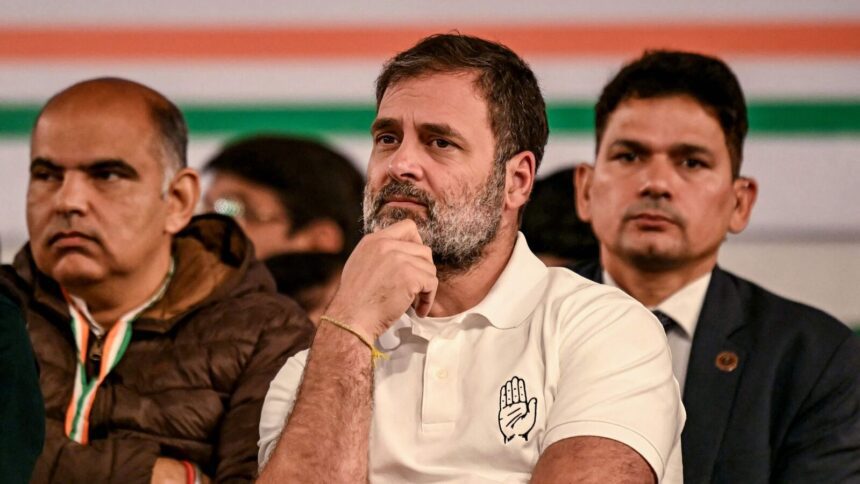Struggling for Care: The Crisis Outside AIIMS Delhi
In recent days, a poignant display of humanity’s struggle for medical care has emerged outside the All India Institute of Medical Sciences (AIIMS) in Delhi. The situation has garnered national attention, particularly due to the remarks made by Congress leader Rahul Gandhi, who visited the site, interacting with patients and their families enduring severe hardships while awaiting critical medical treatments.
The Heartbreaking Reality
On a visit shared via social media, Gandhi met with numerous patients and their families who had resorted to living on the streets, footpaths, and subways while seeking healthcare. Many of these individuals traveled from states such as Uttar Pradesh and Bihar, facing dire circumstances in their quest for medical assistance that is often unavailable in their home regions.
Gandhi was visibly moved and frustrated upon witnessing their plight, stating, “This is completely ridiculous that people are here. They are suffering, they are dying, and they are being thrown out of where they are staying and they don’t have any place to stay.” His words serve as a sobering reminder of the dire conditions many are forced to endure while navigating the healthcare system in India.
A Humanitarian Crisis in Plain Sight
The Leader of the Opposition in the Lok Sabha did not shy away from calling out the negligence of both the Central and Delhi governments, tweeting “Hell outside AIIMS!” Gandhi has questioned the leaders’ apparent indifference, taking a critical stance on their ability to address this humanitarian crisis. As he engages with the families, many of whom have been camped out for months, the stories shared reveal a stark reality: they are not just battling illnesses; they are confronting systemic failures that leave them vulnerable and desperate.
Voices from the Ground
One poignant moment during Gandhi’s visit was when he confronted the stark truth that some patients, suffering from severe conditions such as heart disease and cancer, were enduring the harsh Delhi winter on cold pavements with inadequate shelter or resources. The immediate need for compassionate intervention is pressing, as families scramble for treatment amid emotional and physical turmoil.
A notable quote from the Congress leader, “Mazak chal raha hai (Is this a joke),” encapsulates the absurdity of the situation—highlighting not just the suffering of the individuals but also a broader critique of governance that allows such inequities to persist.
Political Context and Criticism
This visit and the subsequent reactions come on the heels of increasing scrutiny surrounding the management of healthcare services in the capital, especially as Delhi gears up for the Assembly Elections in 2025. Gandhi’s comments about local governance touch on a larger narrative within Indian politics. Recently, he criticized Delhi Chief Minister Arvind Kejriwal, comparing him to Prime Minister Narendra Modi, accusing both of failing to deliver on their promises to the people while simultaneously being oblivious to the challenges faced by the residents.
Conclusion
The heart-wrenching circumstances outside AIIMS highlight a growing crisis that demands urgent attention. As patients and families bear the brunt of inadequate healthcare services and systemic neglect, political leaders are being called to accountability. Rahul Gandhi’s outspokenness serves not only to spotlight their plight but also to urge a collective responsibility among government officials and society at large to reform healthcare accessibility.
As these narratives unfold, it is crucial for citizens to advocate for better healthcare policies, ensuring that no one has to suffer in silence while waiting for life-saving treatments. In a nation as diverse and populous as India, healthcare should be a fundamental right—available to everyone without the struggle for survival before proper treatment even begins.










